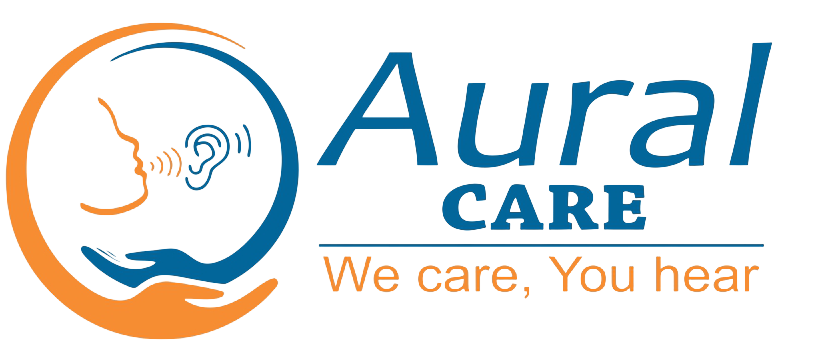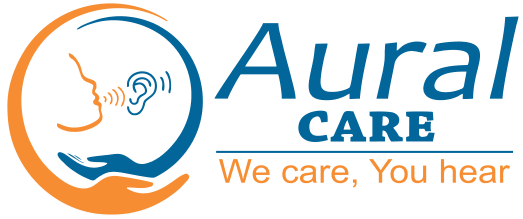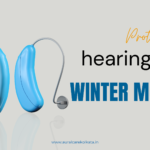Winter is a magical time of the year, with snow-covered landscapes, cozy evenings, and the holiday spirit all around. Its beauty often comes with challenges for individuals relying on hearing aids. As snow falls and temperatures drop, maintaining hearing aid performance during winter becomes a vital task. The cold season introduces unique obstacles like moisture buildup, battery drain, and static electricity, all of which can hinder the functionality of these essential devices. But don’t worry—armed with the right knowledge and tools, you can keep your hearing aids working perfectly even in the harshest conditions. Today we’ll know how to safeguard these essential devices during the season to ensure optimal performance and longevity.
Impact on Hearing Aid Performance During Winter
Winter is a wonderland of challenges for hearing aids. Snowflakes might sparkle, but they bring moisture that seeps into devices. Static electricity crackles through the air, sometimes interfering with sensitive electronics. Let’s break down the main culprits:
- Cold Temperatures: These can stiffen internal components and accelerate battery depletion.
- Condensation: Moving from a frosty outdoor walk to a heated indoor space can create damaging moisture inside the device.
- Static Electricity: Generated by dry air and synthetic fabrics, static can disrupt hearing aids and lead to short-term malfunctions.
Recognizing these challenges is the first step to safeguarding hearing aid performance during winter.
Practical Tips to Protect Hearing Aid Performance During Winter
Whether you’re strolling through a snowy park or bundling up for a ski trip, taking proactive measures can make all the difference in maintaining hearing aid performance during winter. Here are some practical winter hearing aid maintenance tips:
-
Keep Hearing Aids Dry
Moisture is the enemy of electronics. Use a protective hearing aid cover to shield against snow and rain. Once indoors, gently wipe the devices with a microfiber cloth to eliminate any moisture residue.
-
Invest in a Dehumidifier
A dehumidifier is a lifesaver during winter. It removes trapped moisture, preserving your hearing aids’ functionality. Use it every night to keep the devices in top condition.
-
Carry a Maintenance Kit
Winter is unpredictable, so always have a kit with cleaning tools, spare batteries, and a dehumidifier for emergencies.
Battery Care for Cold Weather
Batteries are the lifeblood of hearing aids, and winter drains them faster than usual. Cold temperatures cause chemical reactions in batteries to slow down, reducing their efficiency. Proper battery care ensures uninterrupted hearing aid performance during winter, even in extreme conditions. Here’s how to mitigate this issue:
- Keep Batteries Warm: Store spares at room temperature, not in the cold car or bag. Warm them in your hands before use.
- Use Rechargeable Batteries: Rechargeable models tend to perform better in the cold, making them an excellent option for winter.
- Carry Extras: Always bring spare batteries. A sudden cold snap can catch you off guard.
Avoiding Static Electricity in Winter
That annoying zap you feel after pulling off a sweater? Static electricity. It doesn’t just bother you—it can disrupt your hearing aids, too. To reduce its impact:
- Wear Natural Fabrics: Stick to wool or cotton instead of synthetics, which are notorious for generating static.
- Use Antistatic Sprays: Apply these to clothing and hats to neutralize static buildup.
- Handle Hearing Aids Safely: Before touching your hearing aids, discharge static by touching a grounded metal object.
Optimizing Performance in Outdoor Activities
Winter activities are exhilarating but tough on hearing aids. Falling snow, wind, and physical activity all pose risks. Here’s how to enjoy the season while safeguarding your devices:
- Snug Fit is Key: Loose-fitting hearing aids can slip out during vigorous activities like skiing or sledding. Ensure they’re fitted properly, and consider custom earmolds for added security.
- Wind Noise Reduction: Wind noise can disrupt hearing clarity during outdoor activities. Attach wind noise reduction accessories to enjoy crisp sounds.
- Inspect After Use: After being outdoors, check your hearing aids for signs of moisture or dirt. Cleaning them immediately prevents long-term damage.
Dealing with Common Hearing Aid Issues in Winter Months
Winter’s challenges can lead to problems like distorted sound or reduced battery life. Let’s tackle these issues head-on:
- Distorted Sound: Usually caused by moisture. Use a dehumidifier to dry out the device.
- Shortened Battery Life: Cold weather is the culprit. Replace the battery or warm spares before use.
- Device Malfunctions: If troubleshooting doesn’t resolve the issue, consult your audiologist. A professional cleaning may be needed.
Daily Care for Hearing Aids During Winter
Consistency is key to maintaining hearing aid performance during winter. Adopting a daily care routine will help prevent avoidable problems:
- Dry Storage: Always store hearing aids in a cool, dry place when not in use.
- Routine Cleaning: Wipe down the devices each evening to remove any debris or moisture.
- Audiologist Checkups: Schedule periodic maintenance visits for professional cleaning and inspection.
Traveling with Hearing Aids in Winter
Winter vacations can be magical, but they also require careful planning for hearing aid users. Here’s how to prepare:
- Pack Thoughtfully: Include essentials like spare batteries, cleaning tools, and a portable dehumidifier.
- Avoid Extreme Cold: Never leave hearing aids in a cold car or unheated luggage compartment. Prolonged exposure to freezing temperatures can damage internal components.
- Backup Devices: If possible, travel with a backup pair of hearing aids for emergencies.
Choosing Winter-Friendly Hearing Aids
If you’re due for an upgrade, consider winter-friendly features to optimize hearing aid performance during winter:
- Moisture Resistance: Models designed to withstand damp conditions are a smart investment.
- Custom Earmolds: These provide a snug fit and insulation against the cold.
- Advanced Technology: Devices that adapt to temperature and humidity changes automatically are game-changers for winter reliability.
Importance of Winter Hearing Aid Accessories
Accessories can make all the difference in protecting hearing aid performance during winter.
- Protective Cases: Hard-shell cases shield devices from accidental damage.
- Moisture Control Tools: Use drying kits and desiccants for added moisture protection.
- Wind Noise Reducers: Enjoy clear hearing during breezy winter outings with these handy add-ons.
Special Considerations for Hearing Aid Users in Snowy Regions
1. Managing Heavy Snowfall
In snowy regions, moisture exposure is heightened. Protect your devices by:
- Wearing waterproof gear.
- Using hearing aids with a high IP (Ingress Protection) rating.
2. High-Altitude Challenges
Users in mountainous areas may face extreme cold and low humidity. In such cases:
- Ensure your hearing aids are professionally calibrated for altitude-related changes.
- Keep the devices insulated when not in use.
Why Does Winter Hearing Aid Care Matters?
Imagine missing the crunch of snow underfoot or the laughter of loved ones at a holiday gathering. Proper hearing aid care ensures you stay connected to these precious sounds. Winter may be harsh, but with the right practices, your hearing aids will thrive.
Hearing aids are more than just devices—they’re lifelines to connect with loved ones and participate fully in life’s moments. Whether it’s listening to your favorite carols, engaging in heartfelt holiday conversations, or simply enjoying the crunch of snow underfoot, your hearing aids enable you to cherish these experiences. Winter care isn’t just about preserving the device; it’s about preserving those priceless memories.
Conclusion
Winter can be challenging for hearing aid users, but it doesn’t have to dampen your experience. By taking proactive steps to safeguard hearing aid performance during winter, you can navigate the season with confidence.
From managing moisture to optimizing battery life, every effort you make ensures your hearing aids deliver their best, no matter the weather. With these tips in your toolkit, you’ll be ready to embrace the sounds of winter—clear, crisp, and uninterrupted.
We, Aural Care Center is not only the best hearing aid center in Kolkata but also a leading hearing and speech center. Thus, Aural Care Center is the right choice if you are looking for the Best Hearing Aid Center near me. To know more about hearing aids, get in touch with us.
Schedule an Appointment


